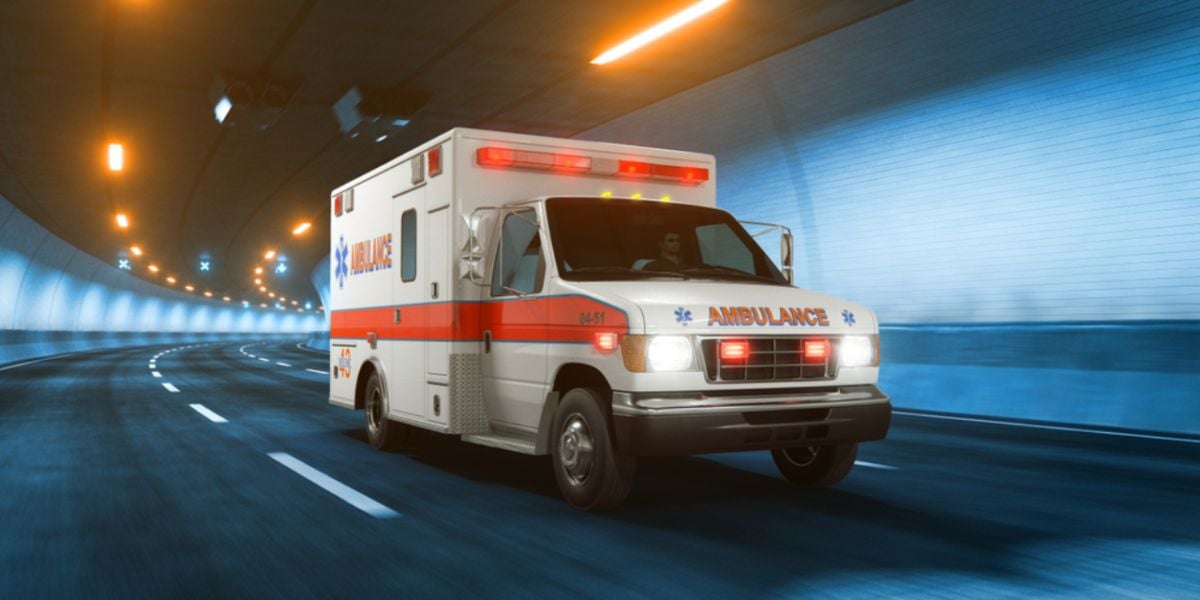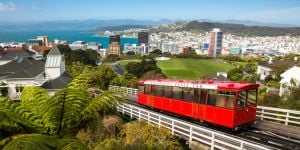
New Zealand has a unique Accident Compensation Corporation (ACC) system available to all New Zealand citizens, residents and temporary visitors to New Zealand, which means if you are injured in an accident, you will be covered, regardless of your immigration or insurance status. New Zealand also has excellent ambulance and rescue services and first aid providers if you do get into a scrape. Read on to discover what you need to know about accidents and emergencies in New Zealand.
The ACC
The Accident Compensation Corporation (ACC) is a unique system in New Zealand that provides cover for personal injuries sustained in the country, regardless of fault. This means that if an expat is injured in an accident while in New Zealand, they will be covered by ACC for medical expenses and other costs related to the injury. Visitors to New Zealand are also covered by ACC for accidents that happen while they are in the country.
However, it's important to note that ACC cover is not a substitute for travel insurance, and expats and visitors are advised to take out travel insurance to cover any additional costs not covered by ACC, such as lost luggage or travel cancellations.
Some of the types of injuries and costs that ACC covers include:
- Medical expenses: ACC covers the cost of medical treatment and rehabilitation for personal injuries.
- Loss of earnings: If an injury prevents an individual from working, ACC may cover the cost of lost income.
- Home and vehicle modification: ACC may provide funding for modifications to an individual's home or vehicle to accommodate their injury.
- Equipment and devices: ACC may provide funding for equipment and devices that are required as a result of an injury, such as wheelchairs or crutches.
- Funeral expenses: ACC covers the cost of a funeral for individuals who die as a result of an injury.
Backcountry accidents and rescues
New Zealand is known for its rugged and remote backcountry, which can be both breathtaking and dangerous for those who venture into unfamiliar territory. Expats who plan on exploring the backcountry should be prepared for the risks involved and take appropriate safety measures.
If you want to improve your backcountry skills, then consider joining the New Zealand Alpine Club, enrolling in navigation courses, or joining a local tramping group where kiwis can help you get to grips with the unique demands of New Zealand's natural environment.
New Zealand's wilderness often does not have cell service, which means carrying an emergency signaling device can be a lifesaver. PLBs (Personal Locator Beacons) and EPIRBs (Emergency Position Indicating Radio Beacons) are two types of emergency signaling devices used for search and rescue purposes. They are designed to transmit a distress signal to alert rescue authorities in the event of an emergency.
PLBs are compact, handheld devices that are typically carried by individuals engaged in outdoor activities such as hiking, camping, or boating. EPIRBs, on the other hand, are designed for use on boats and ships. Both PLBs and EPIRBs operate on dedicated frequencies and are monitored by satellite. When activated, they transmit a unique code that identifies the device and its location to a network of satellites, which then relay the signal to rescue authorities on the ground.
Rescue helicopters
In the event of an accident or injury during your stay in New Zealand, rescue helicopters may be required to reach remote areas and transport the injured person to medical care. While rescue helicopter services in New Zealand are usually provided free of charge, there are certain circumstances where a fee may be charged. For example, if the rescue is deemed to be non-emergency or if the individual has acted recklessly or negligently, they may be responsible for the cost of the rescue. It is important for expats to understand the circumstances under which a rescue helicopter fee may be charged and to take out travel insurance to cover any unexpected costs.
New Zealand Search and Rescue
New Zealand Search and Rescue (NZSAR) is a volunteer-based organization responsible for coordinating and conducting search and rescue operations in the country. It is made up of a network of volunteer organizations and individuals, including local search and rescue groups, police, Civil Defense, and the New Zealand Defense Force. The aim of NZSAR is to provide a rapid and effective response to search and rescue incidents and to help ensure the safety of those in need.
The vast majority of search and rescue operations in New Zealand are conducted by volunteers, who donate their time and expertise to help those in need. These volunteers are trained in a wide range of skills, including navigation, first aid, and wilderness survival, and are equipped with the necessary gear to carry out their tasks.
NZSAR is an essential service in New Zealand, providing a lifeline for those who get into difficulty in the country's rugged and remote terrain. The organization relies on the dedication and expertise of its volunteers to carry out its mission and works closely with other organizations, such as ACC, to provide a comprehensive response to emergencies.
Ambulances in New Zealand
Ambulance services in New Zealand are primarily provided by St John Ambulance, which is a charity organization dedicated to providing ambulance and first aid services to the community. St John Ambulance is the largest ambulance provider in New Zealand and operates a fleet of ambulances, helicopters, and rapid response vehicles to ensure a rapid and effective response to emergencies.
St John Ambulance provides both emergency and non-emergency ambulance transport, and the service operates 24 hours a day, 7 days a week, throughout the country. In emergency situations, patients can call 111 to request an ambulance, and the service will dispatch the nearest available ambulance to the scene.
In non-emergency situations, patients can also request an ambulance, although they may be required to pay a fee for the service. In these cases, patients are transported to a hospital or other medical facilities, and the cost of the service is covered by ACC or private health insurance.
Be aware that your visa status and insurance may affect whether you are required to pay a fee for an ambulance, so be sure to check this out with your insurer or in your New Zealand visa conditions.
First Aid in New Zealand
In New Zealand, the main provider of first aid information and training is the New Zealand Red Cross. They offer a variety of first aid courses that cover a range of topics, including basic first aid, CPR, and emergency response. It is also recommended to have a basic understanding of first aid and to keep a first aid kit readily available in case of emergencies.
What to do if you experience an accident in New Zealand
Of course, if you experience an accident in New Zealand, the first thing to do is to seek help rather than worry about costs down the line. Ideally, you will have insurance to cover the costs, or the ACC system will cover you. However, regardless of your visa status, it is better to be alive and with a bill to pay than the alternative, so always err on the side of caution and seek help if you are in an accident that requires medical assistance.
If you experience an accident in New Zealand, there are several steps you should take:
- Firstly, seek medical attention if necessary. If you or anyone involved in the accident is injured, call 111 (New Zealand's emergency services number) for an ambulance or helicopter.
- If you are in an area with no cell phone service, you will have to decide whether you are able to travel somewhere with a signal or wait for help to arrive. This depends on who you are traveling with, where you are, and what kind of terrain you are in. If you are out of cell phone coverage, this would be a situation in which you would set off your EPIRB or PLB if you carry one.
- Report the accident to the police. If the police are not called to the scene, and the accident involves any personal injury, damage to property, or is likely to cause a traffic obstruction, you should report it to the police as soon as possible.
- If you have been involved in a car accident, always exchange information with the other drivers involved in the accident. This includes names, addresses, phone numbers, vehicle registration numbers, and insurance information. If there are any witnesses to the accident, try to get their names and contact information.
- Take photographs of the scene and any damage caused. This will be useful for insurance purposes or if any legal charges are laid regarding the incident.
- Notify your insurance company as soon as possible. They will advise you on the next steps to take and may send an assessor to inspect the damage.
We do our best to provide accurate and up to date information. However, if you have noticed any inaccuracies in this article, please let us know in the comments section below.











